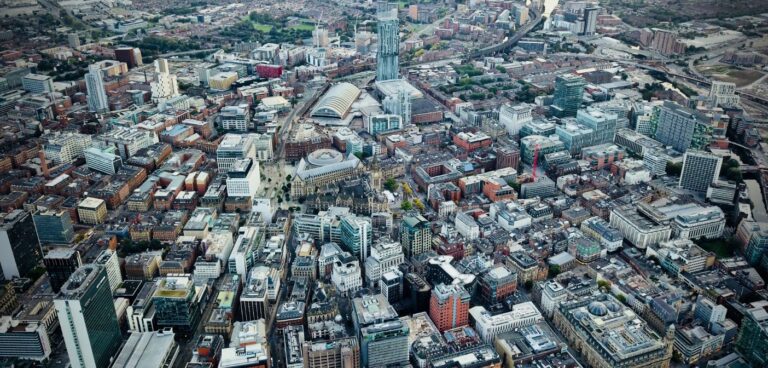Greater Manchester’s clean air leaders will be asked to seek the UK government’s permission to put the second phase of clean air zone (CAZ) funding on hold and ask for an urgent and fundamental government review of the policy, including into the availability and affordability of cleaner vehicles.
A report to the Greater Manchester Air Quality Administration Committee next Thursday (20 January) will set out emerging evidence that global supply-chain issues could increase the costs and reduce availability of cleaner vehicles.
According to Greater Manchester Combined Authority (GMCA), more work is needed to understand whether this could create significant financial hardship for commercial vehicle users. What this means for Greater Manchester local authorities, and its impact on their ability to comply on time with a legal direction from government to tackle illegal levels of air pollution, is also to be determined.
With nearly £100m of clean vehicle funding support due to open at the end of January, officials are recommending that councillors seek permission from the secretary of state to pause these funds until the government undertakes an urgent review of the supply-chain issues, to understand what this could mean for the Greater Manchester Clean Air Plan.
This would seek to ensure that the right funding arrangements can be put in place quickly that better reflect the additional costs and vehicle availability problems that businesses are facing, said GMCA. Greater Manchester secured £120m in government funding toward upgrading non-compliant commercial vehicles but the government reportedly did not agree to provide additional hardship funding.
Mayor of Greater Manchester, Andy Burnham, said: “Everyone in Greater Manchester deserves to breathe clean air but we have always said this cannot be at the expense of those who cannot afford to upgrade their vehicles to make them compliant in this timeframe.
“Clean air can only be achieved by the right package of financial support to help people upgrade their vehicles, and this latest evidence highlights significant challenges in this area.
“We are worried about what this could mean for those businesses and individuals impacted, and their ability to upgrade as well as our ability to deliver the clean air plan.
“We will work with ministers and officials to share our findings, but these are matters out of our control and we can’t solve this in Greater Manchester – only government can.”
GMCA’s report recommends that the first phase of the CAZ due to launch in May 2022 – applying to buses, coaches, HGVs and taxi and private hire vehicles not registered in Greater Manchester – should go ahead, including the ongoing provision of funding support for HGVs and buses to upgrade. Greater Manchester coach operators who need more time to upgrade are being urged to apply for an exemption to 01 June 2023.
The CAZ does not include private cars, mopeds or motorbikes or any vehicle travelling on the Strategic Route Network – Greater Manchester’s motorway system – as the government has yet to apply the same legal direction to national highways for city-region motorway networks.
Greater Manchester CAZ timeline
In March 2020, the UK government issued a legal direction requiring the 10 Greater Manchester councils to introduce a Category C charging CAZ – mainly commercial vehicles including HGVs, buses, coaches, minibuses, vans, taxis and private hire vehicles that do not meet set national standards for NO2 emissions.The most polluting of these specific vehicle types – that do not meet government prescribed emissions standards – will be charged from 01 June 2023 with the most polluting buses, HGVs and non-GM licensed taxis and private hire vehicles charged from 30 May 2022.
The Greater Manchester Clean Air Plan, which sets out support options for those impacted, was prepared with the government to meet the terms of the direction to achieve legal NO2 limit values in the shortest possible time and by 2024 at the latest.





